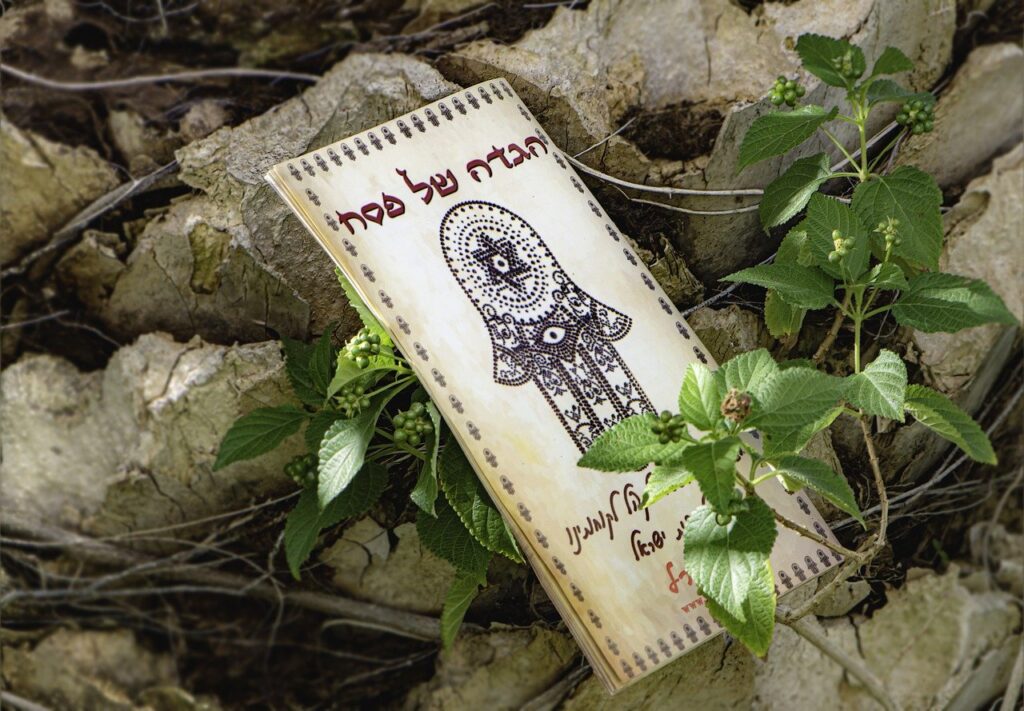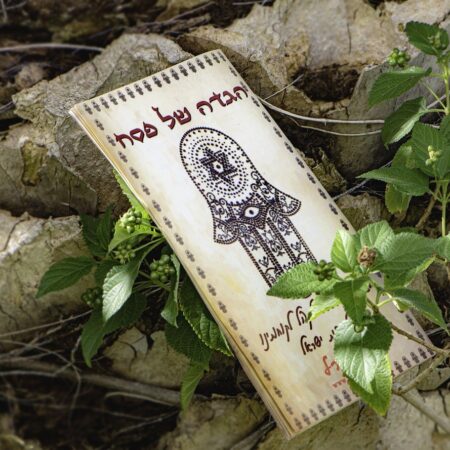The blood shall be a sign for you on the houses where you live: when I see the blood, I will pass over you, and no plague shall destroy you when I strike the land of Egypt. This day shall be a day of remembrance for you. You shall celebrate it as a festival to the Lord; throughout your generations you shall observe it as a perpetual ordinance.
–Exodus 12:13-14

Is Happy Passover appropriate? Of course it is. You can also tell someone you hope they have a kosher and joyous passover. You can learn more about that here. And while we’re noting that, you do know what kosher is, right?
What’s kosher?
Kosher denotes things that are legitimate and allowed for Jews. Relating to food, it’s those foods approved to consumption, but you can also apply the word to other things. To me, hearing someone wish someone a “kosher and joyous Passover” connotes one that follows the proper rituals, with the proper foods, and that is filled with the life-affirming reverence for God.
And it really is something to celebrate! This year someone sent around a meme from a Jewish friend with this text under it: “Commemorating not getting killed by a plague during a plague that you hope you’re not getting killed by is probably as Jewish as you can get.” I hope that sounds funny and good-natured to Jewish folks. It certainly puts a fine point on the experience of celebrating Passover during a pandemic.
Thou Shall Not Covet Your Neighbor’s Festivals
But just like the word “kosher,” Passover sometimes suffers some illegitimate appropriation. It’s okay to appreciate someone else’s culture. It’s okay to recognize it as good and special. But when you’re celebrating something that’s not a part of your experience, you have to tread lightly. I remember a few years ago it became en vogue for Christian churches to invite Temples and synagogues to “co-celebrate” a passover meal. The idea was, of course, that Jesus and the disciples shared their last Passover together as The Last Supper, which is very important to Christians.
The Last Supper, however is not important to Jews. Nor should it be. It’s not a part of their experience, nor their faith. And Passover may have taken on a significance for Christians, but it’s not the same significance, in my opinion, as it has for the descendants of the people who lived through the terrible plagues in Egypt before they were released to pursue their dream of a homeland in Israel.
Read the Story and Learn!
Read the story of Passover in Exodus, Chapter Twelve. It’s powerful, full of drama and the enactment of the divine covenant with God’s chosen people. And yes, I know it’s in “our” bible, just as it’s in “their” bible. But it doesn’t make it a one-to-one equivalent for all of us. I guess I’m hoping you’ll hear the story and recognize the value of Jewish history in shaping our world. But I also want you to hear how important it is for them to be them without us trying to imprint our agenda on their experience.
I’m NOT saying Christians can’t or shouldn’t celebrate Passover. You’ll find plenty of pundits online describing why you should. But I don’t believe it’s the same as the Jewish celebration. Especially when it doesn’t have to be kosher.
I wish our Jewish friends and colleagues a kosher and joyous Passover.


One Comment
This is great, appreciate this post. I’ve always had non-Jews at my seder table. It is certainly a shared piece of heritage, but I agree has taken on different meaning and significance for Jews and Christians. But the story is timeless and as relevant today as ever as we wrestle with our modern day plague and dig into what it means to be free.